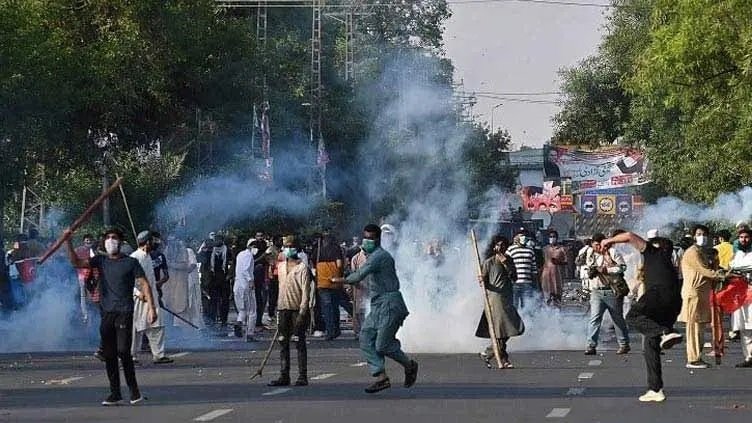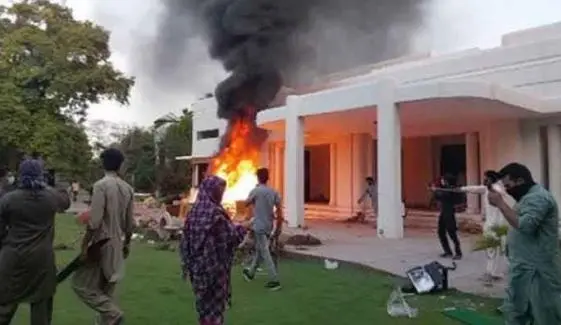The Special Anti-Terrorism Courts (ATCs) in Sargodha and Rawalpindi continued intensive proceedings on May 9-related cases, which stem from the violent protests and attacks that broke out across Pakistan following the arrest of former Prime Minister Imran Khan in 2023. The latest hearings have led to significant developments, including a major conviction and the formal designation of dozens of individuals as proclaimed offenders.
In a landmark judgment delivered on Friday, an anti-terrorism court in Sargodha sentenced Pakistan Tehreek-e-Insaf (PTI) worker Muhammad Ismail to rigorous life imprisonment. Ismail was found guilty of participating in the mob attack on the judicial complex in Mianwali on May 9. The court ruled that the evidence clearly demonstrated his active role in the planning and execution of the violent assault, which damaged public property and threatened the lives of officials.
In addition to this conviction, the court also declared 50 other individuals as proclaimed offenders for failing to appear before the court despite repeated summons. Among those named are high-profile political figures, including Ahmad Khan Bhachar, former opposition leader in the Punjab Assembly, and PTI Members of the National Assembly (MNAs) Ahmad Chatha and Bilal Ijaz. The declaration marks a significant escalation in legal action against political leaders allegedly involved in the unrest.
Meanwhile, in Rawalpindi, the Special ATC led by Judge Syed Amjad Ali Shah continued hearing multiple first information reports (FIRs) related to attacks on sensitive state installations including the GHQ gate, Army Museum, Metro Bus stations, and offices of intelligence agencies. Fourteen FIRs are under trial in Rawalpindi alone, but many cases have been slowed by incomplete charge sheets and prolonged absence of key witnesses.
The Supreme Court had earlier instructed all ATCs to conclude May 9-related trials within four months. As a result, courts have accelerated proceedings, and the state is actively preparing a new constitutional petition to shift an additional 25 accused individuals to military courts. This move would follow the precedent set by the Supreme Court’s approval of military trials for 105 individuals in earlier rulings.
So far, Rawalpindi ATC has conducted over 70 hearings, including in-prison trials, where some accused have already received verdicts. In one such case, 20 PTI supporters involved in vandalizing the Tarnol Railway Station were sentenced to six months in jail and fined Rs. 75,000 each after pleading guilty.
Despite this progress, delays persist in several key cases, particularly the GHQ gate attack, where magistrates and investigating officers have failed to appear in court for over three months. Defense lawyers have criticized these delays, calling them a violation of fair trial standards, and have raised objections to the prosecution’s last-minute applications for polygraph tests and other forensic evaluations.
High-profile defense teams, representing incarcerated PTI leaders including Imran Khan and Shah Mehmood Qureshi, are preparing to challenge the validity of the prosecution’s methods and are scheduled to appear before the Lahore High Court on May 15 for bail hearings.
As courts intensify their crackdown and legal momentum builds, the cases related to the May 9 violence are shaping up to be among the most consequential in recent Pakistani legal and political history. With rigorous sentences being issued and dozens of prominent leaders declared fugitives, the outcome of these proceedings is expected to have a far-reaching impact on the country’s legal framework, political dynamics, and public trust in judicial accountability.























